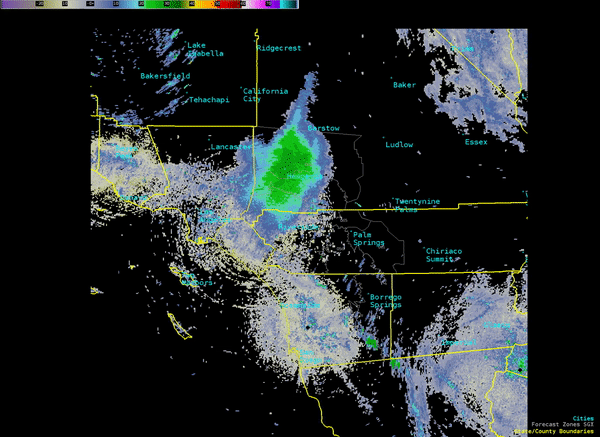
Craveology Cafe and the North Star Science Store are temporarily closed for renovation.

Image Credit: NWS San Diego
On June 4, 2019, a group of ladybugs (termed a bloom) traveling over Southern California grew so large it was picked up by weather radar at the National Weather Service in San Diego.
At first, the radar echo appeared to be an 80-mile wide band of precipitation. National Weather Service (NWS) staff confirmed it was no traditional cloud, but a cloud of ladybugs. They tracked the ladybugs traveling from the San Gabriel Mountains to San Diego County.
What questions do you have about ladybugs and animals that travel in groups? For example:
How can we suggest answers to these questions by investigating certain patterns or cause-and-effect relationships related to the environment, seasons and animal behavior?
Resources
Twitter: NWS San Diego Original Tweet
LA Times: High-flying ladybug swarm shows up on National Weather Service radar
University of California: Convergent Lady Beetle
University of California: Annual Cycle of Migration